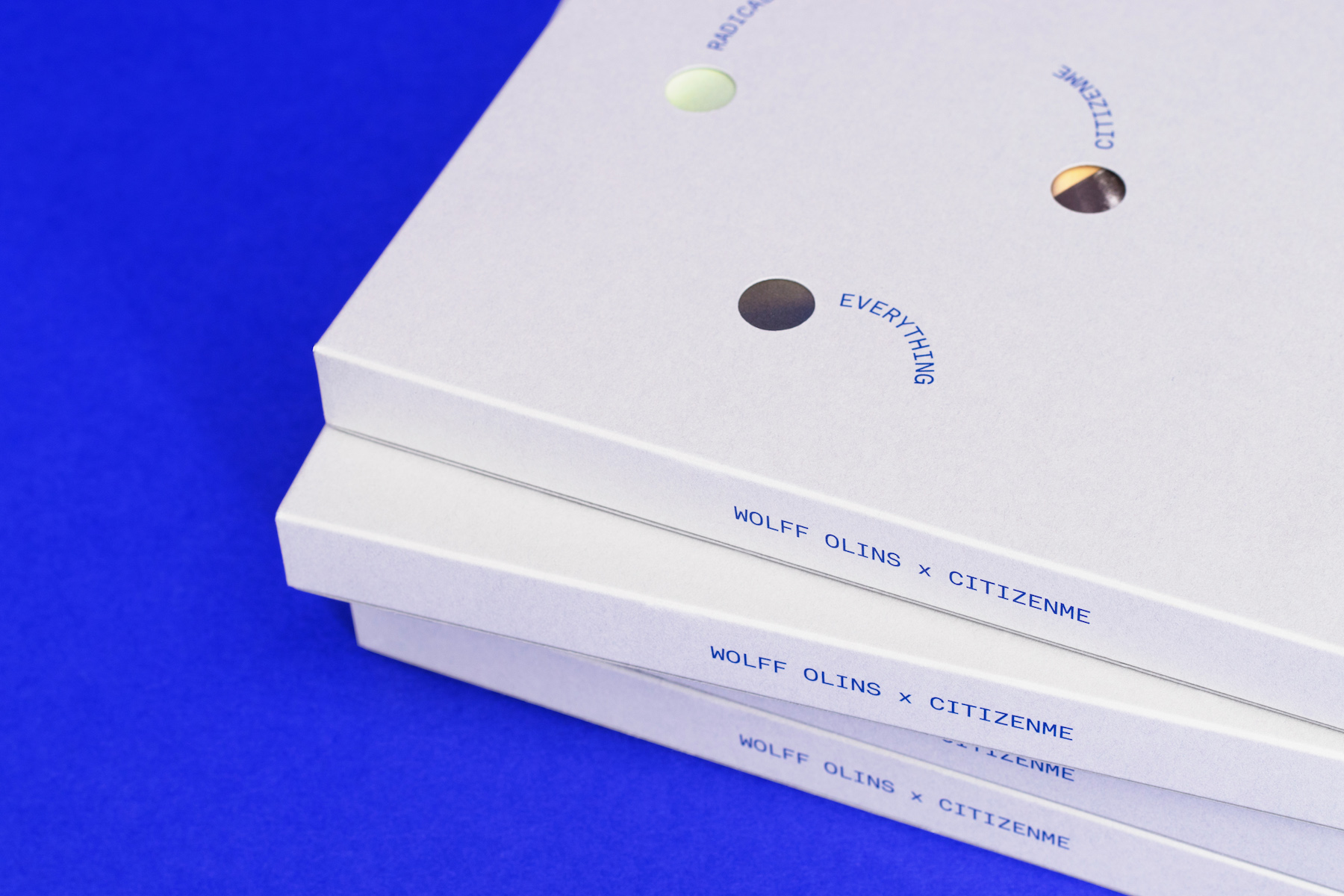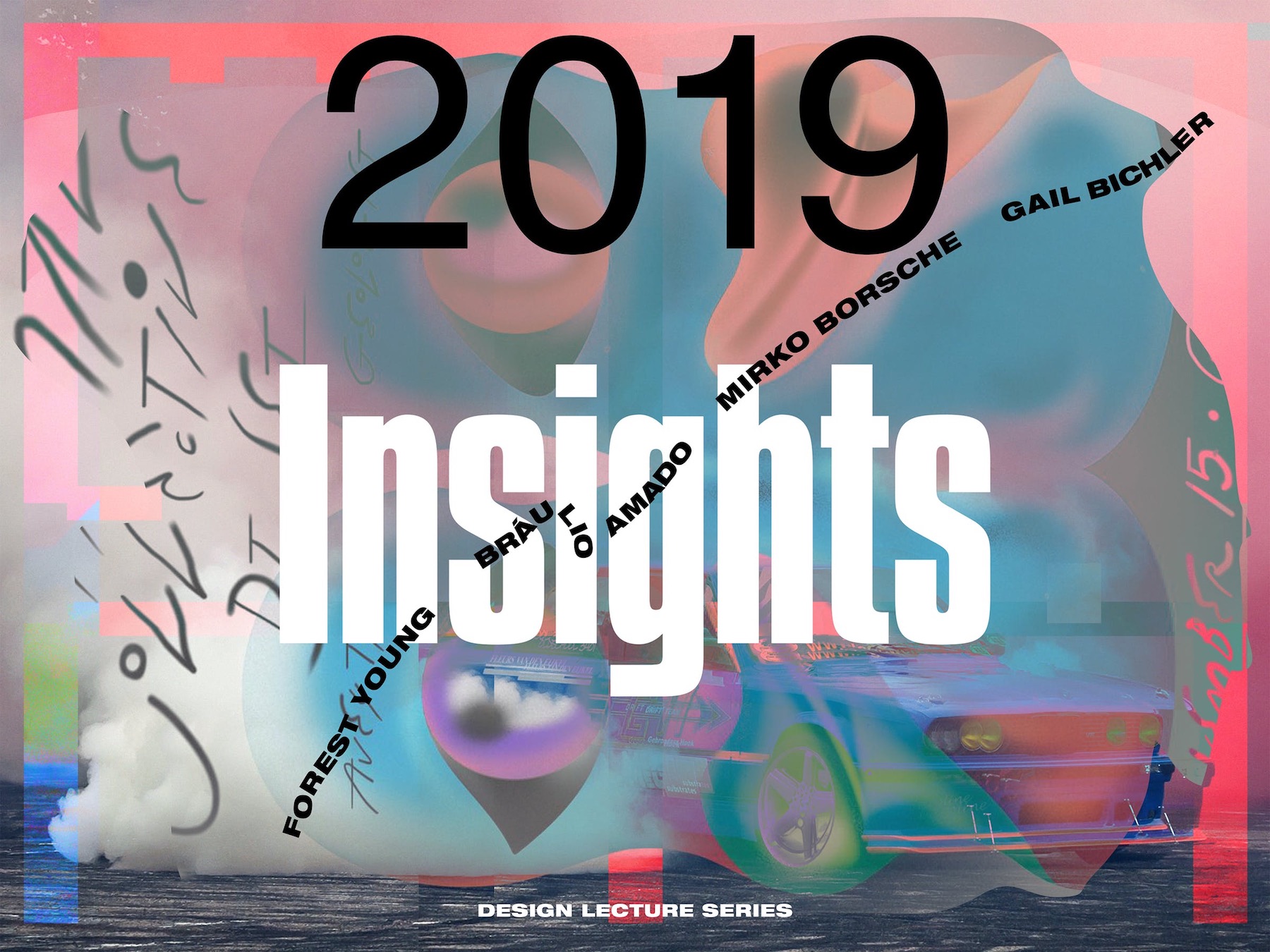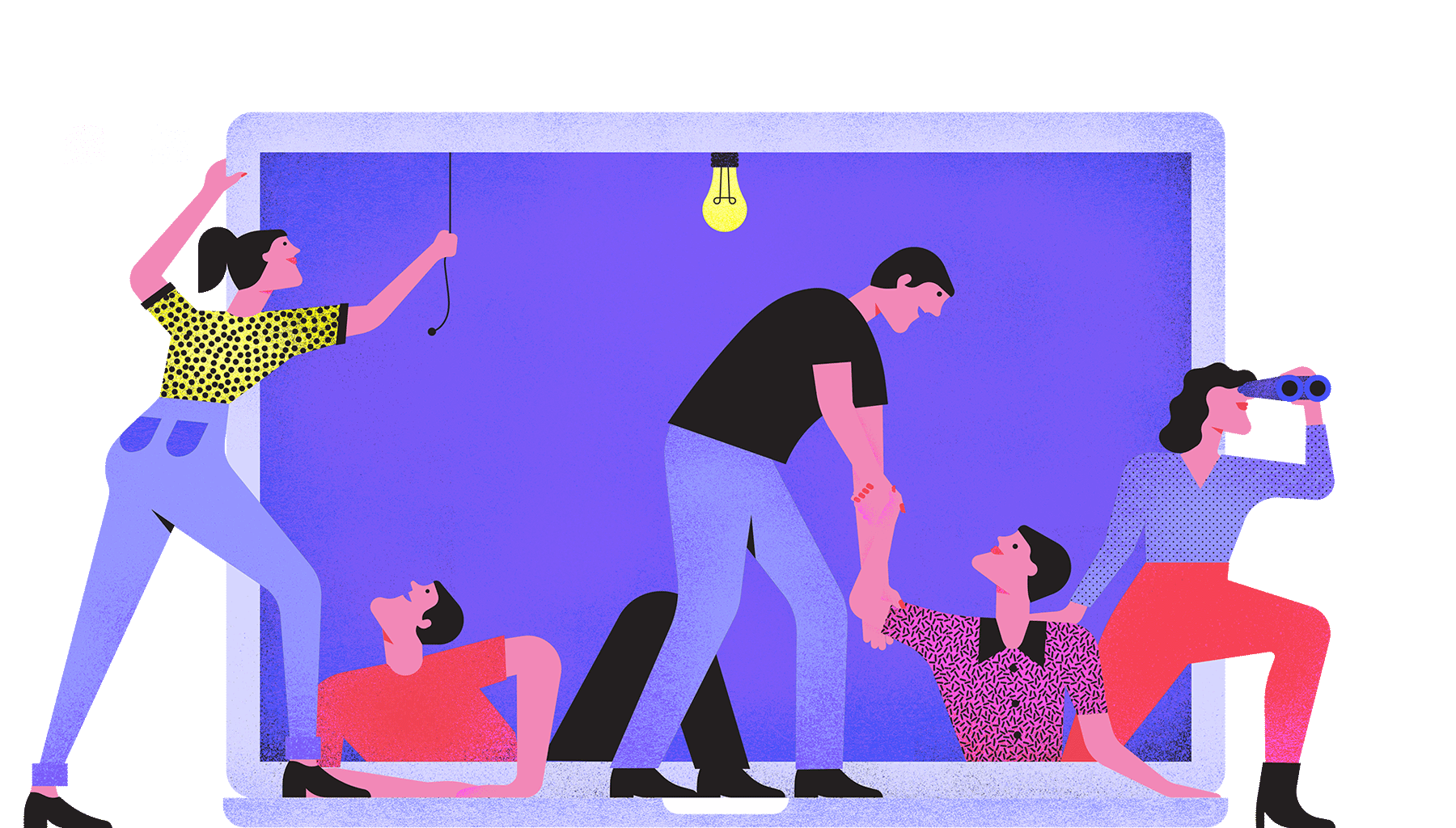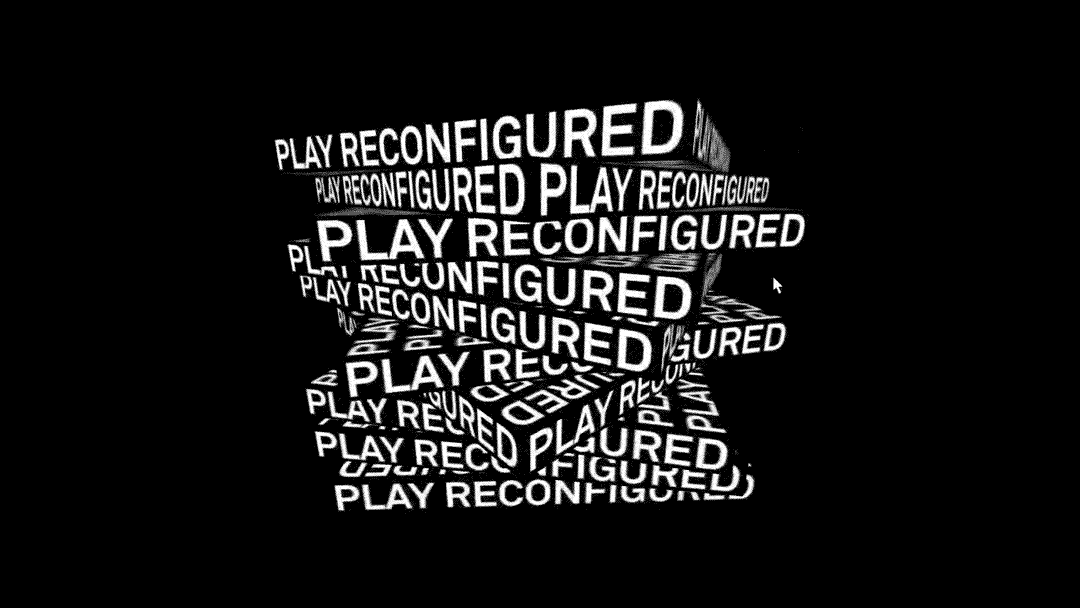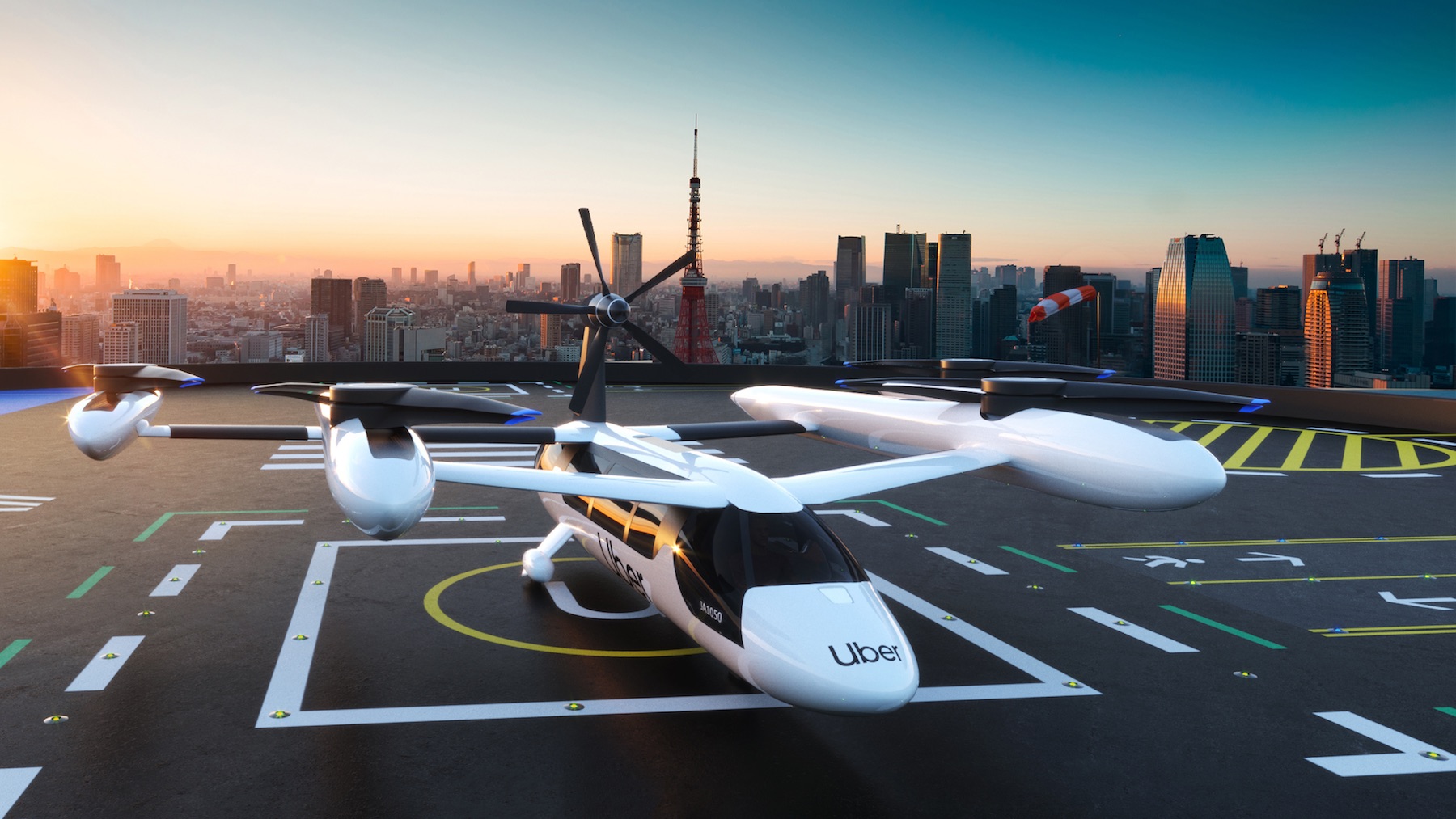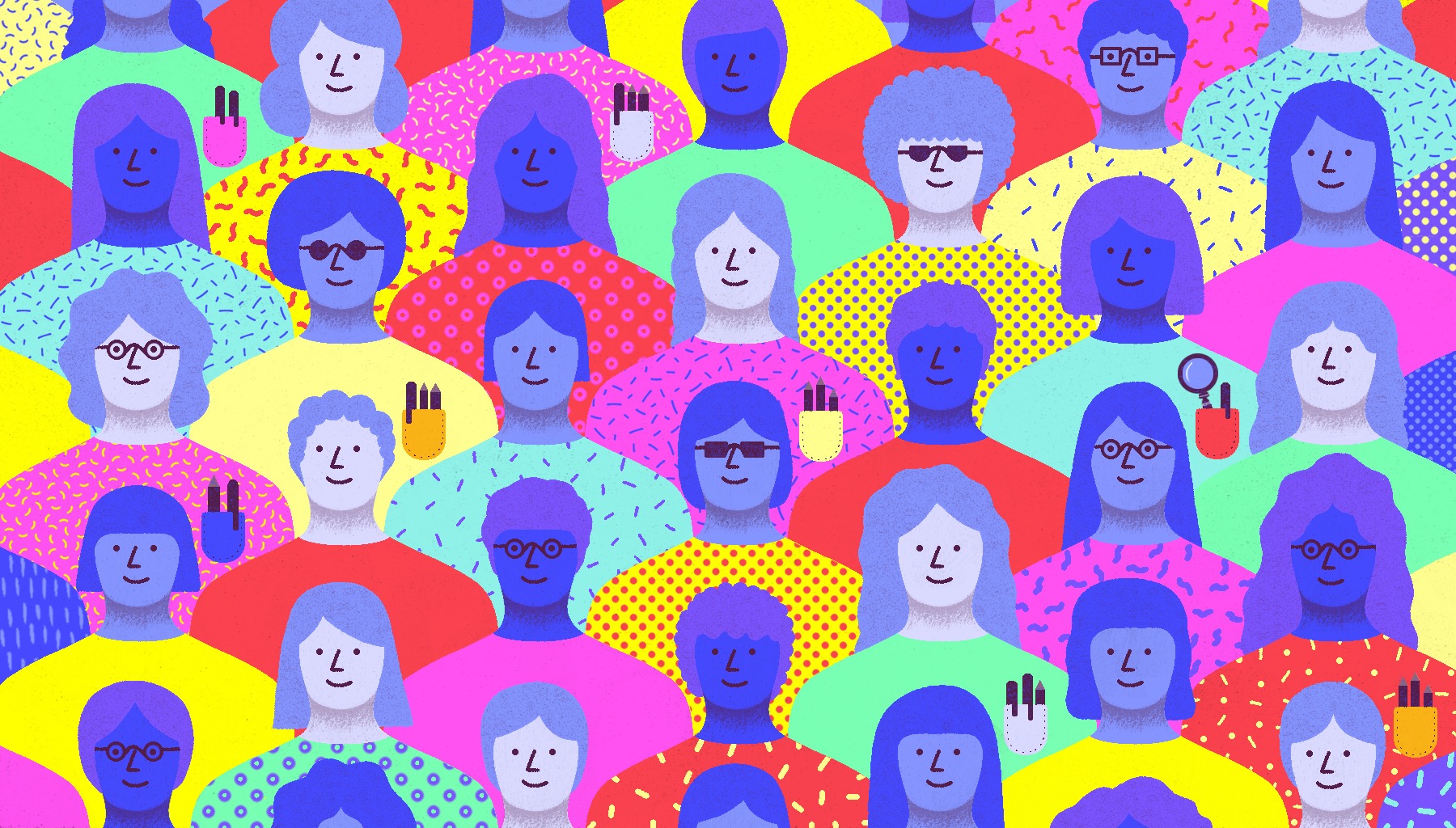
How McKinsey & Company is betting on the power of partnerships
3 minute read
McKinsey & Company has always enabled clients to gain insight and help them to set their strategic direction on the things that matter the most to them. Now it is going further, enabling organisations to actively make change happen and, crucially, to make that change stick. McKinsey asked us to help design a new brand presence that not only reflects the things it is known for, but communicates the transformative force it is becoming.
McKinsey is a management consultancy firm like no other. It’s an exceptional partnership of exceptional people, with a prestigious heritage and a global reputation. Working as lead strategic and creative partner, Wolff Olins has partnered with McKinsey for a number of years on a series of engagements that have stretched across the entire firm.
Beginning with the fast growth Digital McKinsey practice, through to its solutions portfolio and emerging practices such as analytics experts QuantumBlack, we have worked with McKinsey’s leadership to build clear propositions, and define and organise their architecture. Most recently, we have partnered to design a new look and feel for a firm that is changing at a phenomenal pace. Over half of the work McKinsey does for clients now is in areas like design, digital, and analytics, with teams which didn’t exist as little as five years ago.
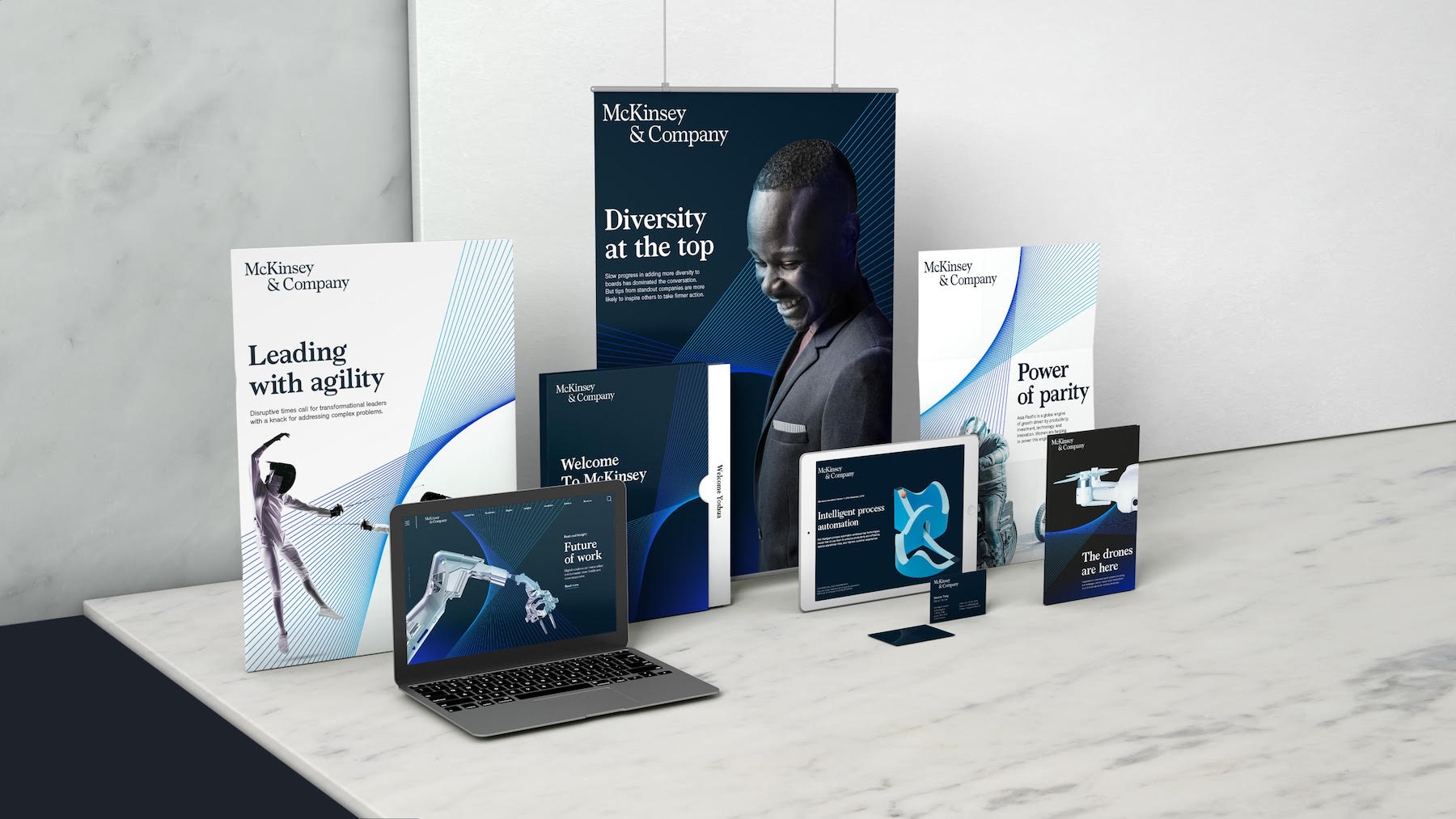
High Contrast Whilst some things about McKinsey are changing enormously, others – like its commitment to hiring and developing talented individuals – will always stay the same. We therefore decided to embrace this inherent tension by making the idea of ‘high contrast’ a guiding light for the new identity.
Made up of a series of interconnected assets, the new visual identity represents McKinsey’s changing role in the world, its clients and its people. The new script mark, an evolution of the historic serif logo, was redesigned with a modern character to maximise its digital as well as physical presence.
A new dynamic element was introduced in the form of the ‘Partnership Mark,’ a mark in perpetual motion that symbolises the new agile ways McKinsey works with clients. Used across communications, the Partnership Mark also resolves into a short-form icon. The brand remains blue – but a new ‘McKinsey blue,’ contrasted against a clean white, helping to cut through the visual noise we all interact with every day.

Partnering for Impact The new identity was purposefully built by embracing McKinsey’s partnership model: Wolff Olins collaborated with best-in-class talent to raise the fidelity of every part of the system.
A new bespoke typeface, Bower, named after McKinsey partner Marvin Bower, was created with typographer Radim Pesko to add a singular confidence and clarity to its communications.
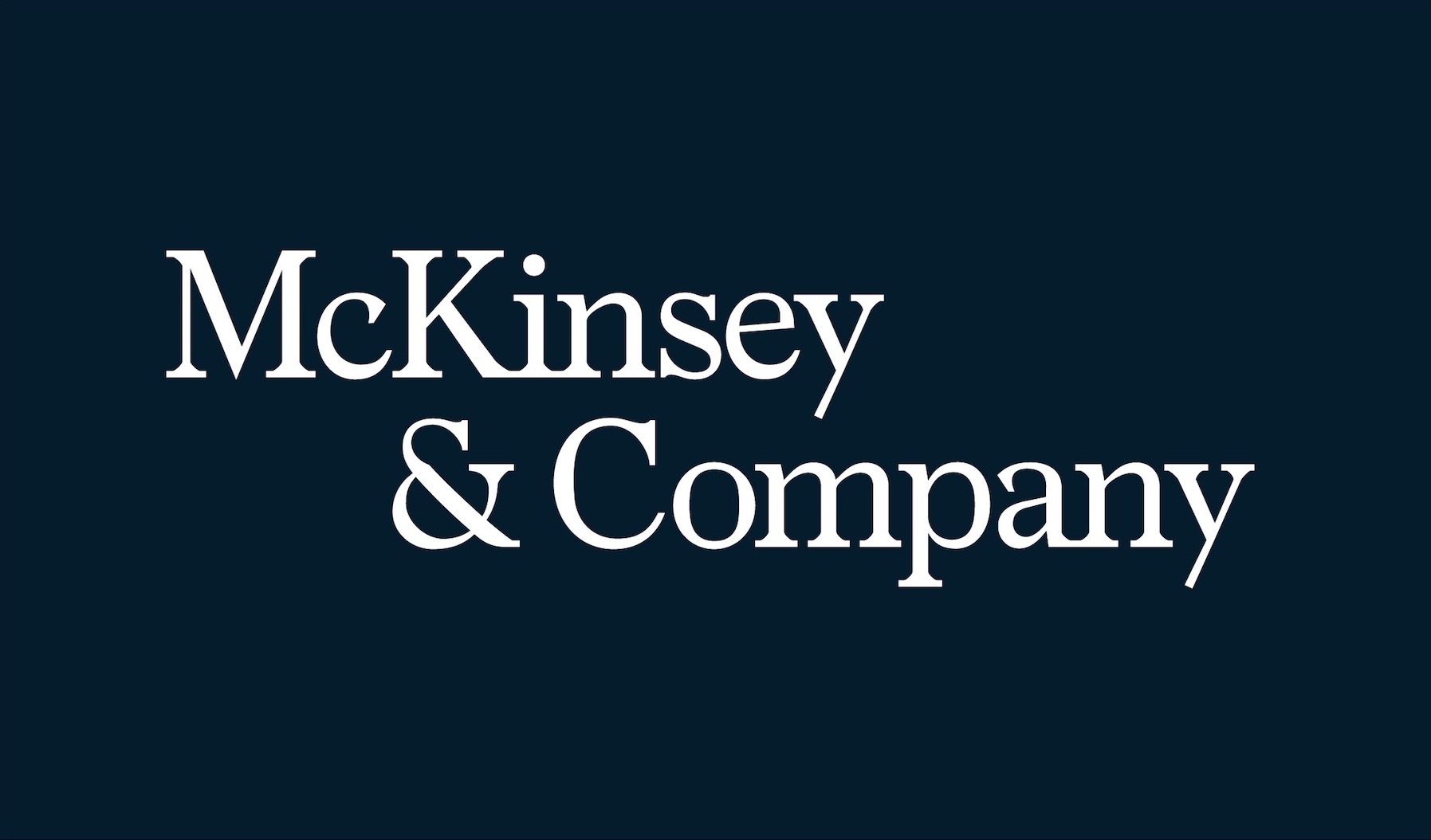
A complete data visualisation package was built with data design agency Signal Noise to enable McKinsey clients to see what matters most. A custom photographic style was developed to give unique fidelity and focus to all imagery and was systemised by the post-production team at The Laundry Room. Finally, Territory Studios created a short film demonstrating the identity in action which was given a one of a kind score and sonic language by Sixieme Son.
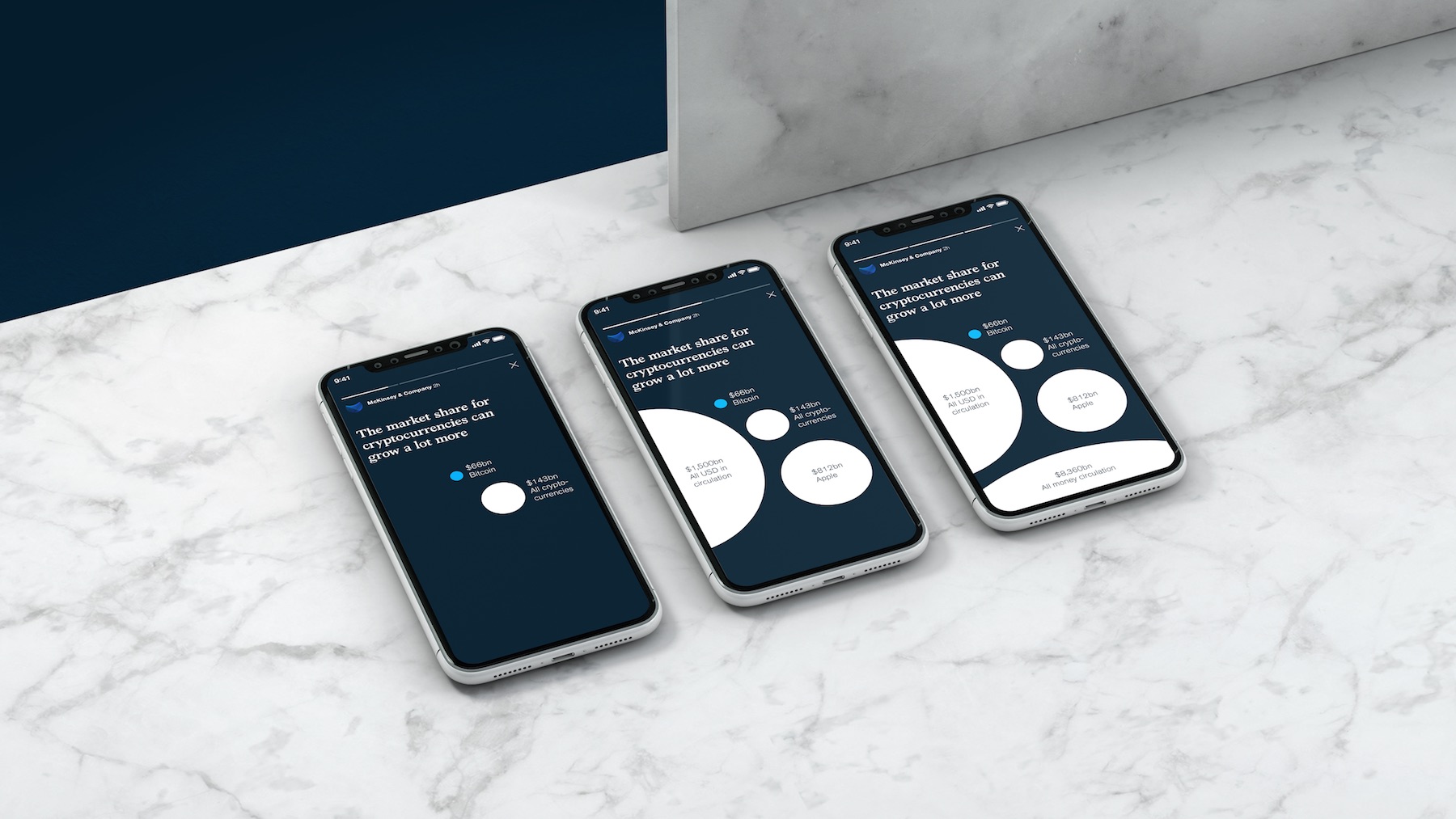
After a warmly welcomed launch in Vancouver in 2018, the identity was launched globally [HD1] in February 2019 alongside implementation partners OPX and Critical Mass. We’re excited to see the change it brings for the firm and the continued impact it has in the world.
